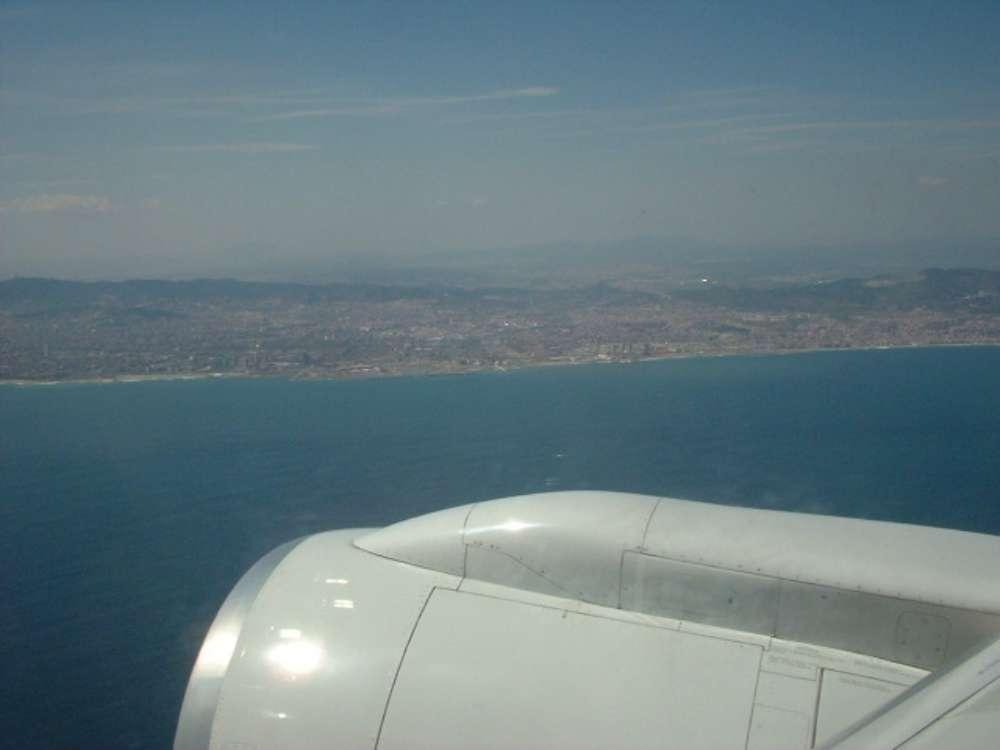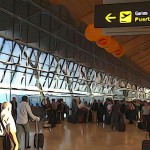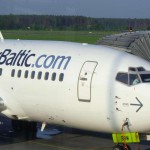AIRLINE INDUSTRY CRISIS HITS 2009 IBERIA PERFORMANCE
Madrid –
§ Iberia posted a net loss of 273 million euros in 2009
§ A 6 per cent reduction in seat supply put load factor at 79.8 per cent, among the highest of Europe’s network airlines
§ Operating revenues plunged by 19.2 per cent as world economic slump and decline in international trade depressed passenger and freight demand
§ Operating expenses declined by 12 per cent, thanks to 28.9 per cent savings on fuel
§ Fleet utilisation rate up 3.7 per cent to 10.3 hours/day, while fleet was cut by 10 aircraft at end-2009, and staff trimmed by 4.2 per cent
§ Maintenance division’s external revenues climbed 4.1 per cent to 322 million euros
§ Iberia closed the year with net assets of 1,551 million euros and an available balance of 1,919 million euros at the end of the financial year
§ Fourth quarter brought first signs of recovery in passenger and freight volume, as well as unit income per ASK
Iberia today posted its results in 2009, one of the most difficult years in the airline’s history, when the world economic crisis and stiff competition led to a steep decline in operating income. After 13 consecutive profitable years, Iberia reported a net loss of 273 million euros in 2009.
Throughout the year Iberia adapted its supply of flight services to the changes in the different markets, cutting seat supply overall by 6 per cent, which brought an overall passenger load factor of 79.8 per cent, similar to that of 2008, and one of the highest achieved by any European network carrier last year.
Operating income plunged by 19.1 per cent in the year, due to the collapse in both passenger and cargo demand. Average income per RPK dropped 14.1 per cent from the 2008 level, due chiefly to the decline in demand for business class seats, and to cutthroat competition in most of Iberia’s markets.
Meanwhile, operating expenses fell by 11.9 per cent to 4,873 million euros in 2009, due in large part to the 482 million euro (28.9 per cent) reduction in spending on fuel, thanks to lower prices and smaller purchases. Unit operating costs were down by 6.3 per cent to 7.84 euro-cents per ASK.
The average staff level was trimmed by 4.2 per cent to 20,671 people. The 6 per cent decline in seat supply led to a 1.8 per cent fall in productivity, measured as ASK per employee. In contrast, the fleet utilisation rate rose 3.7 per cent to an average of 10.3 hours/day per aircraft, thanks to the reduction of the fleet by 10 aircraft via the cancelling of leasing agreements, the postponement of new deliveries and the mothballing of some units. At the end of 2009 Iberia had 109 aircraft in service.
Adjusting supply to demand
Passenger traffic (RPKs) fell by 6.2 per cent in the year, while seat supply (ASKs) was cut by 6 per cent. On long-haul routes the seat supply reduction was only 3.3 per cent, while traffic volume in this segment declined by 5.4 per cent in the year. The final quarter showed some signs of recovery, and the occupancy rate (load factor) edged 0.6 points higher. Business class seat demand in the segment was off by 13.3 per cent, but it recovered slightly after the summer. Iberia maintained its leadership of the Europe-Latin America market with a 20.1 per cent share.
Load factor on Iberia’s medium haul international flights improved by 2.5 points, reaching 75.6 per cent, following a 9.2 per cent cut in seat supplies. Demand in this segment fell by 6 per cent.
Seat supplies in the domestic market were cut by 11 per cent in the year, which pushed the load factor 0.4 points higher. On the Madrid-Barcelona route seat supplies were slashed by 20 per cent; this percentage was lower in the last nine months of the year
Other business areas
Revenues from outside clients amounted to 322 million euros for Iberia Maintenance in 2009, a 4.1 per cent improvement from the previous year, thanks mostly to technical assistance to Spain’s Defence Ministry and landing gear repairs, a new business line for the division.
Despite a 7.3 per cent decline in the number of aircraft served, the income from Iberia’s handling division (Iberia Airport Services) was down by only 3.3 per cent, thanks to a 2.1 per cent increase in unit revenues, and larger income flows from other airport services, including Iberia’s share in a new business for assisting reduced-mobility passengers. In the fourth quarter, handling division revenues were boosted by 2 per cent when the Vueling carrier signed up for the division’s services.
Financial situation
As of December 31, 2009, the Iberia Group has net assets of 1,551 million euros, down 0.8 per cent for the year. The impact of the net loss of 273 million euros in 2009 was offset by better hedging operations valuation and the rise in value of British Airways shares. Iberia’s available balance came to 1,974 million euros, 377 million less than a year earlier.
Picture: Carstino Delmonte/ Touristikpresse.net















